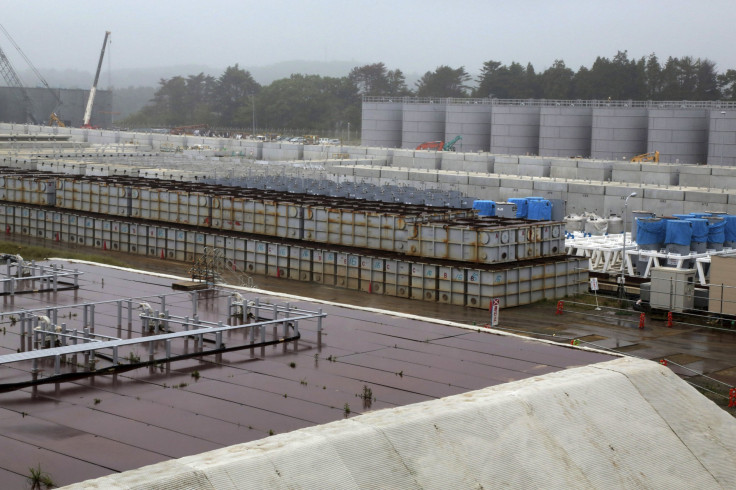Fukushima Nuclear Plant Leak: Japan Government May Use Emergency Reserves For Cleanup, Government Takes Control Of Recovery Operations From Tepco

The Japanese government has wrested control of clean-up operations at the damaged Fukushima nuclear power plant from its beleaguered operator, which has been accused of mismanaging the process, and is considering using budget reserves to fund its recovery, Toshimitsu Motegi, the trade and industry minister, said, on Monday.
Tokyo Electric Power Company, or Tepco, which operates the plant said it would seek the help of foreign decommissioning experts to contain leakage of radioactive water, after admitting last week that tons of highly contaminated water had leaked from one of its storage tanks that stored the water used as coolants for the damaged nuclear reactors. The leak, considered as one of the worst in a series of mishaps at the stricken nuclear facility, had forced the country to issue a level 3 danger warning, last week.
The trade minister, who visited the facility late on Monday, blamed the operator’s lax maintenance for the leaks and said he would establish a task force to monitor the clean-up at the crippled plant to avoid further instances of leakages, in a clear indication that the government is taking control of recovery operations at the crippled plant.
"The urgency of the situation is very high," Motegi said. "From here on the government will take charge," he told reporters after visiting the facility, Associated Press, or AP, reported.
The Japanese government has $3.5 billion in its emergency reserve funds for the year 2013-14, and the government could use this to fund the clean-up operations.
"For measures that require sophisticated technology, we will appropriately implement them as the government while collaborating with authorities on fiscal measures, including the use of a reserve fund," Motegi said, according to Reuters.
Tepco President Naomi Hirose, who accompanied Motegi during the visit, apologized for the leaks and said the company would be forming a new task force and will build additional tanks to store the contaminated water, AP reported.
Tepco was heavily criticized for its failure in containing the damage at the Fukushima plant, which in March 2011, was hit by a giant tsunami triggered by an earthquake that ravaged the nuclear plant, and damaged its back-up generators and cooling system, leading to a meltdown of its reactors.
Earlier this month, after months of denial, Tepco admitted that the radioactive water leaking from the plant’s storage tanks and underground tunnels had reached the Pacific Ocean. Following the confirmation of the leaks, Japan’s nuclear watch dog had said that the crisis at the Fukushima plant had escalated beyond the control of Tepco.
Last week, Tepco, acknowledging its failure in handling the crisis said that it would seek the help of international decommissioning experts on ways to control leaks and disposing the contaminated water at the plant.
The crisis, experts point out, is more severe than Tepco has ascertained, as the process of cooling the melted reactors has to continue to prevent the reactors from achieving a state of criticality, or from triggering a self-sustaining chain of nuclear reactions.
The tons of radioactive water from the plant are currently stored in huge tanks, and due to flaws in their design and other issues, some of the tanks and underground tunnels have been leaking, contaminating the surroundings. Although some amount of the water is being treated with filters to reduce its radioactivity, experts point out that disposing the contaminated filters would also pose challenges.
The drainage system in the wrecked nuclear plant already contains more than 20,000 tons of water with high levels of radioactivity, and more than 1,000 giant tanks that were built to hold the contaminated water around the facility are nearly full, posing new challenges to the operator.
Meanwhile, Russia, which had offered its help to clean up the Fukushima facility two years ago, has repeated its offer to help Japan in dealing with the crisis.
“In our globalized nuclear industry we don’t have national accidents, they are all international,” Vladimir Asmolov, first deputy director general of Rosenergoatom, the state-owned Russian nuclear utility said, according to Japan Daily Press report.
© Copyright IBTimes 2024. All rights reserved.












